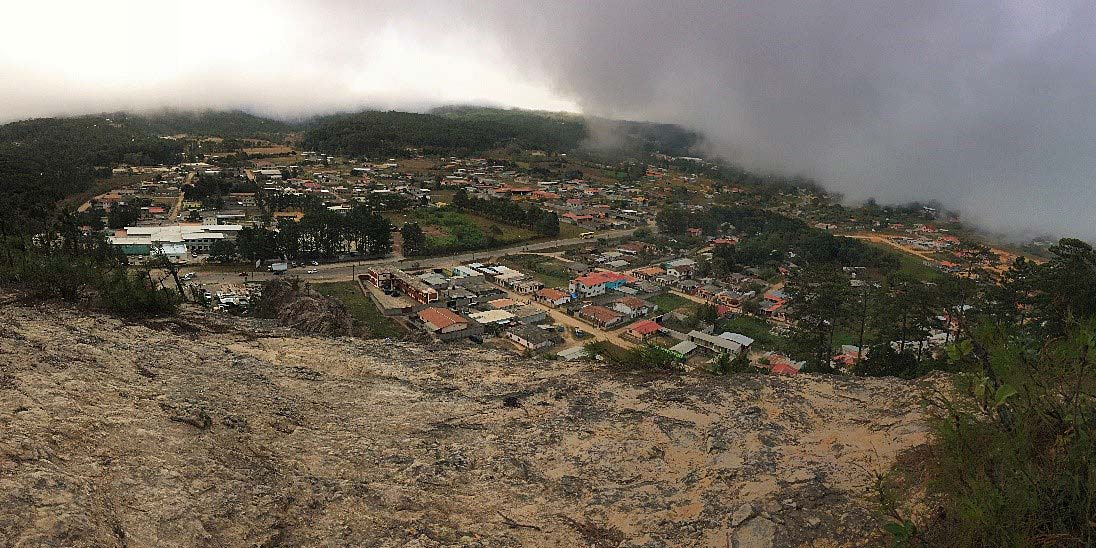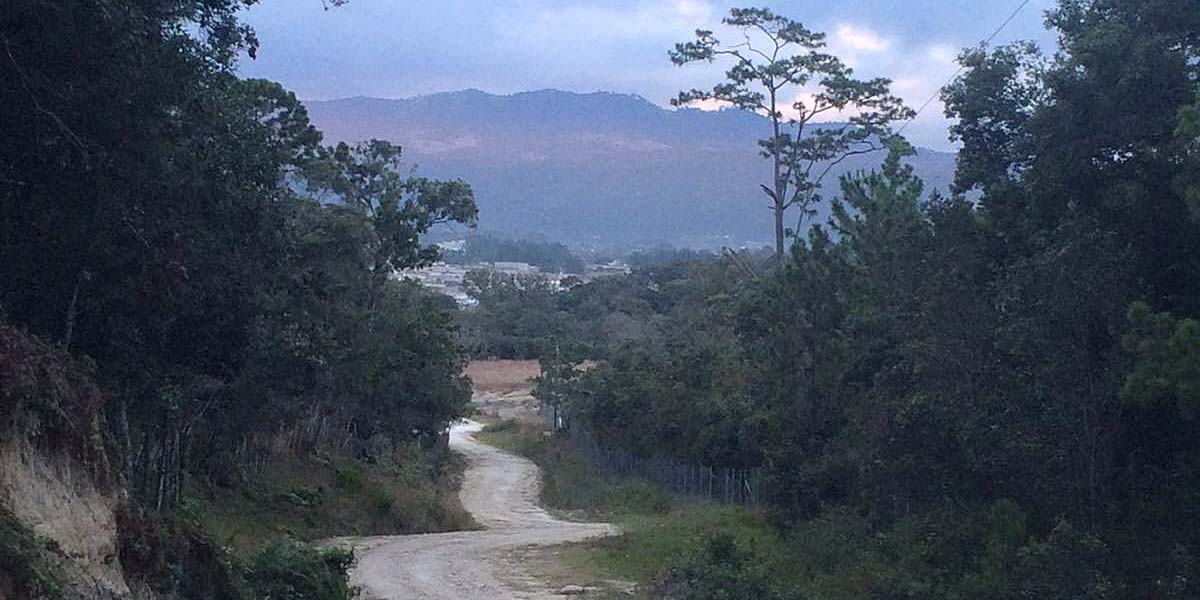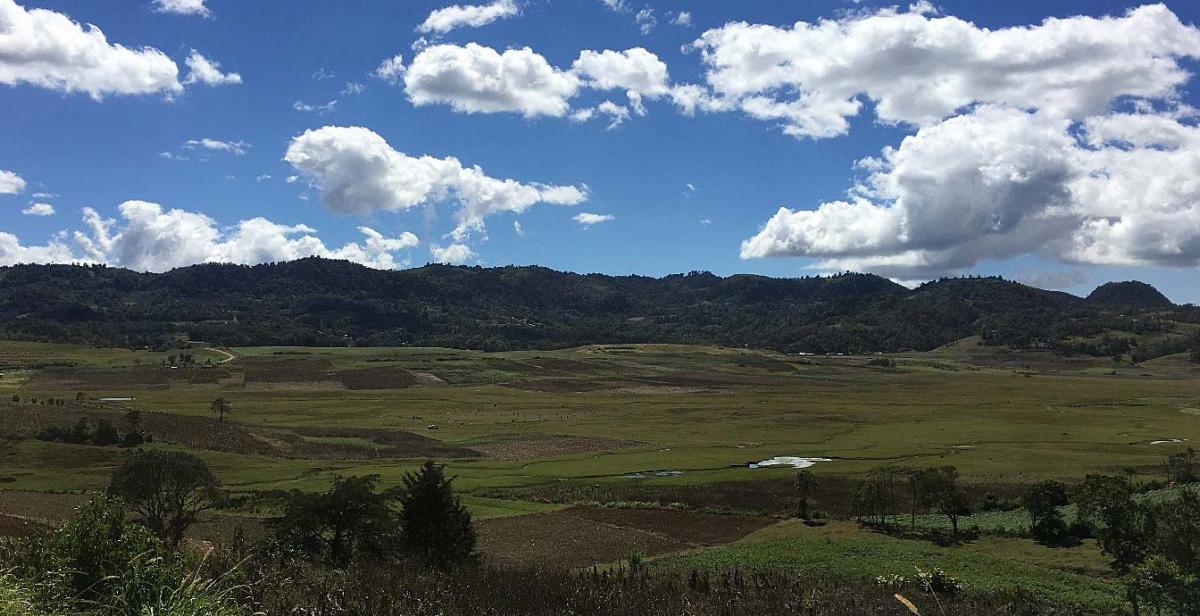I must admit that this is a somewhat self-indulgent blog post. The title alone contains two of my favourite things: history and terrible puns. Yet when we received a talk on Honduran history from José Martinez, an academic from the charity Democracia sin Fronteras (Democracy Without Borders), it gave me the perfect excuse to write a blog on the subject. As a self-confessed history junkie, I find it fascinating to see why things turned out the way they have by looking into the past. For example, the reason why San Pedro Sula became Honduras’ second largest city, and main industrial centre, is because a railway, which was planned to start at the Atlantic coast and reach the capital city, Tegucigalpa, ran out of money in 1888 when it reached San Pedro Sula. If the railway had been completed, chances are that the city would have remained a relatively small regional centre rather than a city of national importance.
Have you ever heard of the term ‘Banana Republic’? No, not the clothing store, the term used to describe a small, politically unstable Latin American country, run for the benefit of foreign companies. Well, Honduras is the country which inspired the term. Honduras became an independent republic in 1838 and soon became home to an expanding banana industry. It did not take long for this lucrative trade to catch the eye of US businessmen. Towards the end of the nineteenth century, Honduras - like many other Latin American countries - was persuaded by rich Western nations that the best thing for Honduras’ economy was to open it up to foreign interests. Unsurprisingly, it was actually these foreign interests, which were the chief beneficiaries.

By the turn of the century three US fruit companies - Cuyamel Fruit Company, United Fruit Company, and Standard Fruit Company - dominated the cultivation, harvesting, and exportation of bananas in Honduras, as well as the country’s road, rail, and maritime infrastructure. So pervasive was their influence that the United Fruit Company became known by the Honduran people as El Pulpo (the octopus), due to its habit of twisting its tentacles into every corner of Honduran society. The main banana-producing regions were in the north of the country towards the Atlantic coast, where the produce could most efficiently be transported to the USA. It is interesting to note that this region remains the most industrial part of Honduras, showing how much the country’s present is influenced by its history.
The companies operated a self-sufficient, tax-exempt enclave economy in the region, exploiting local labour-power and resources for their own benefit, yet contributing little or nothing to long-term economic development. In recent years it seemed as if history might repeat itself when in 2012 the Honduran government proposed to create an enclave city with its own laws, tax system, judiciary and police force, to attract foreign investors. The idea was, perhaps unsurprisingly, inspired by US economic advisers, and was thankfully shut down by the Honduran supreme court, before it could progress any further than the planning stages.
It is shocking to read about the impunity with which the US fruit companies acted. In 1911, the Cuyamel Fruit Company hired a private army, under the command of US mercenary soldier Lee Christmas, to launch a coup d’etat against the Honduran government. Yes, you read that right. A fruit company decided that it didn’t like the government in the country in which it was operated and so hired a private army to change it. The USA, the self-proclaimed bastion of democracy, looked the other way since the regime change suited its interests. As punishment for his crime, Lee Christmas later became the Commander-in-Chief of the Honduran army and, after that, US Consul to the country. For its part, the US sent troops to intervene in some way or another in Honduras in 1903, 1907, 1911, 1912, 1919, 1924 and 1925. They returned in the 1980s to use the country as a base to support the government of El Salvador and to support the Contras during the Nicaraguan Revolution.

If there is one word I would use to describe Honduras throughout its history, it is victim. For the most part, it has been a country not in control of its own destiny but acted upon by powerful outside forces. This is a state of affairs which sadly continues to this day. Honduras is the third most vulnerable country to climate change, yet is only ranked 100 in contributions to CO2 emissions. Honduras’ economy is still geared to serving the needs of Western - primarily US - consumers. Honduras, once home to the Maya who were the first people to cultivate maize (yes, the title was relevant to the content of the blog), is now a net importer of this staple foodstuff because it simply isn’t economically viable to grow it here any more. This is partly because of the impact of climate change and partly because in recent decades Honduras has become even more exposed to the vagaries of the global economy.
History has a funny habit of repeating itself. Since the 1970s developing countries have again been convinced by powerful Western nations that the best thing for their economies is to open them up to foreign interests. This has meant that, rather than growing food to feed its people, Honduras’ agricultural sector has become focused on the production of cash crops – primarily coffee and, of course, bananas.
Written by ICS Mark Normington. Photos by Edward Da Silva Ali.



